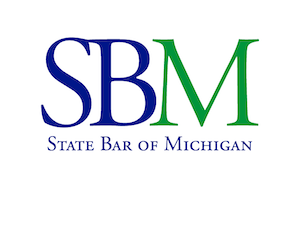Guide to a Peaceful Future
Offers in Compromise
Navigating Tax Complexity: Offers in Compromise
Navigating the tax laws can be daunting. This is why Frazier Law is committed to helping you understand these intricacies in everyday language. If you owe back taxes to the IRS, a Tennessee Offers in Compromise Lawyer could be your path to tax respite.
An Offer in Compromise (OIC) stands as an agreement between you, as the taxpayer, and the Internal Revenue Service. Essentially, it allows you to settle your tax liabilities for a lesser amount. An OIC could end up clearing your tax slate entirely, should you qualify for this program.
How Offers in Compromise Work
Primarily, the OIC facilitates taxpayers in paying a lower sum for their unsettled tax liability. This includes unpaid tax amounts, penalties, interest, and other additions. This program offers a lifeline to taxpayers to resolve their tax debts, while also aiding the IRS in recovering funds that may otherwise remain uncollectible.
In essence, an OIC validates the full assessed liability for tax, penalties, and interest for the years mentioned in the offer. Questions regarding tax liabilities for the years encompassed in the agreement are conclusively settled. However, neither the taxpayer nor the IRS can revisit a compromised tax year unless there is falsification of information or documents, concealment of ability to pay and/or assets, or a mutual mistake of a material fact that could challenge or revise a contract.
Questions? Consult a Tennessee Offers in Compromise Lawyer today.
Understanding Your Options: Variations in Tennessee Offer In Compromise
The IRS will consider three grounds for an OIC: Doubt as to liability, doubt as to collectability, and effective tax administration.
Each ground for an OIC offers different pros and cons. Doubt as to liability must be substantiated with a legitimate uncertainty about the liability’s validity. An OIC based on doubt as to collectability requires a detailed analysis of the taxpayer’s net worth and future income potential. Effective tax administration allows for a tax liability compromise if full collection would cause economic hardship or if public policy or equity considerations provide a basis for compromise.
The decision on an OIC is subjective. The federal government is not legally obligated to compromise or settle with you. Submitting to this program will subject you to greater IRS scrutiny than if you apply for an installment payment plan. It’s critical to approach this process with caution and confidence, as the IRS will now have all the information it needs to escalate collection efforts against you.
Contact a lawyer well-versed in the Offers in Compromise program in Tennessee and across the U.S.
Is An Offer In Compromise The Right Path for You?
Frazier Law only recommends submitting an Offer in Compromise when we believe your application has a high chance of approval. The IRS offers a pre-qualifier test for just this purpose. However, it’s important to note that the interest on the amount you owe continues to accrue during the application process, which can take some time.
Frazier Law is here to help you with your business tax matters and estate planning needs. We combine legal expertise and compassionate counsel to guide you to the best tax resolution options.
Avoid falling prey to debt relief scams that target taxpayers by monitoring public records for tax lien information. These firms often send misleading letters warning of drastic consequences. Frazier Law provides reliable legal advice to protect your interests, with the aim of settling your tax debt responsibly. With the guidance of an expert tax law lawyer and CPA, Frazier Law is dedicated to helping you effectively navigate Offers in Compromise in Tennessee and throughout the country.
While many OICs are rejected, those with a limited stream of income and no equity in assets often have the best chance of approval. The key is to ensure you qualify for an OIC and are in compliance with your tax filing and payment obligations.
Frazier Law: Advocating for Client Interests
At Frazier Law, we prioritize our clients, providing representation to business owners confronting difficulties with the IRS or State Department of Tax Revenue. We are committed to protecting families with cost-effective estate planning services. Tapping into our vast experience and understanding, we find the right solutions for your needs. Count on us to stand by your side as we explore the feasibility of Offers in Compromise and other tax resolution options.











